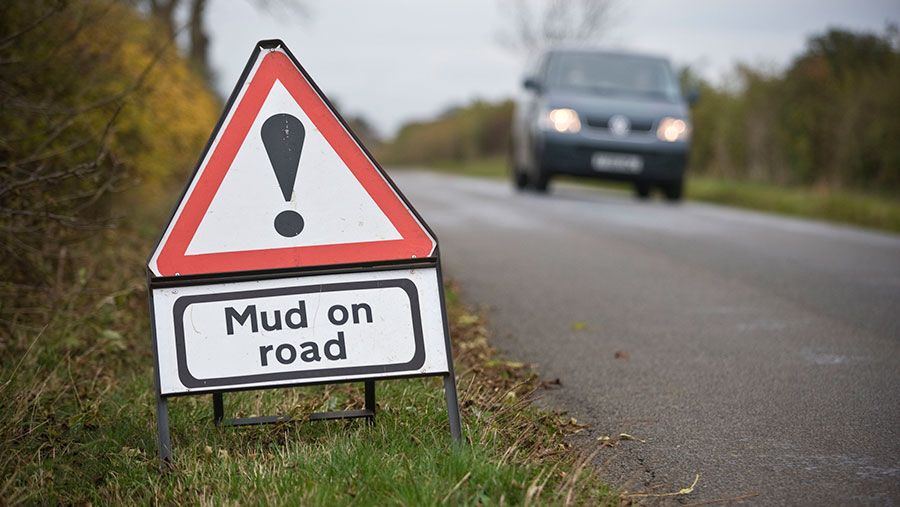Mud on road prompts warning to farmers
 © Tim Scrivener
© Tim Scrivener Reports of mud on the road have prompted reminders that farmers could be liable for a range of offences – and possible imprisonment.
It follows several reports of muddy roads to North Yorkshire County Council, which said it was repeating its guidance for operators of agricultural vehicles.
Mud on the road can present a serious hazard to drivers, particularly during wintry weather, said the local authority.
See also: Mud on the road: A farmer’s responsibility explained
Farmers and vehicle operators who deposited mud on the road were potentially liable for a range of offences, it added.
Legal action
A range of powers is available to police and the highway authority – primarily under the Highways Act 1980 and the Road Traffic Act 1988.
Don Mackenzie, North Yorkshire County Council’s executive member for highways, said: “Where mud results in personal injury, damage to property, loss or inconvenience, civil action can be taken.
“It can constitute a public nuisance and loss or injury can result in a claim for negligence.
“In its role as the highways authority, the county council has a duty to assert and protect the rights of road users.”
Section 149 of the Highways Act 1980 gives the Highway Authority the power to clean the road and recover its expenses from the person causing the obstruction.
The council said farmers or construction vehicle operators must:
- Be prepared to hire equipment to promptly remove deposits
- Keep to their own farm roads whenever possible
- Keep to low speeds and prevent mud from being deposited by removing any excess before driving on to roads
- Use authorised signs positioned to give maximum visibility to road users
- Clean the road as necessary during the working day and always at the end of the working day
Farmers should also ensure that labour and equipment is available and suitable for the soil and weather conditions in question, said the council.
Where a contractor is used, a prior agreement should be reached on who is responsible for mud on road signs and cleaning – and that adequate public liability insurance is in place.
The Highways Act 1980 states: “If a person, without lawful authority or excuse, deposits anything whatsoever on a highway in consequence of which a user of the highway is injured or endangered, that person is guilty of an offence.”
The Road Traffic Act 1988 covers situations where a vehicle is driven dangerously on a road.
Driving dangerously can include driving a vehicle in a state that could cause danger to others.
Punishment for these offences ranges from fines to imprisonment.
